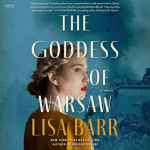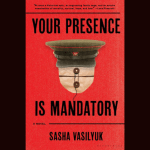 The Sunflower House by Adriana Allegri
The Sunflower House by Adriana AllegriMy rating: 4 of 5 stars
I knew that the Nazis had encouraged German women to bear many children, but I didn’t appreciate how far they pushed that agenda. The Sunflower House, by Adriana Allegri, is a gripping new page-turner about the Lebensborn program, which was intended to help repopulate Germany with good Aryans to replace the men lost in wars. The shortage of men due to all the deaths in the First World War, combined with tough economic times post-war, led to a declining population in Germany during the inter-war period. One way that eugenicist Heinrich Himmler devised to encourage the birth of more high-quality stock was to encourage even unmarried Ayran women to breed. The regime set up a network of birthing houses in Germany and in conquered territories (including Norway, Austria, Denmark and even France). This novel, based heavily on documented fact, explores how these houses worked, through the eyes of an orphaned woman who ends up in one after having learned a startling secret about her own lineage.
Most of the babies born to unwed mothers in these Lebensborn facilities were turned over to well-connected Nazi families. Because the birth mothers were well fed and cared for during their pregnancies, some married women with connections, such as officers’ wives, would also go to them for their final weeks of pregnancy and first few weeks postpartum.
I was startled to learn that some of the facilities became essentially whorehouses for Nazi officers, who were encouraged to spread their seed at parties held at the homes. Pretty young German women who weren’t pregnant would be invited to come and help produce babies for the nation’s glory. As Adriana Allegri writes in her author’s note, “Sexual relations became sport, sport with a sacred purpose.” There were even dinner parties where, in true Handmaid’s Tale fashion, the wife would sit on one side of the officer and his breeder du jour on the other.
Another shameful secret explored in the book was that a huge proportion of the babies born in these houses failed to thrive, despite their “pure” lineage. The suggestion in the novel is that this was because the care of the newborns was overly regimented, not giving the babies the stimulation they needed to learn to speak and move properly. As a result, a huge number of the babies were sent off for the Nazi’s horrendous medical “experiments”.
Although the book is a bit heavy on the romance angle for my taste (though that would doubtless be a pro rather than a con for many readers), it was a well-told and informative story that kept me reading eagerly. The main character, Allina, is complex. She struggles with her quick temper and reluctance to play the games required to survive. The book also explores secrets, and the impact they can have on relationships and future generations. Overall, a moving and thought-provoking read. This would be great book club material!
View all my reviews
(Note: I received a free review copy of this book. My policy is to only write reviews of freebies if I feel they are good enough to justify your time as a reader. This one certainly qualifies.)




